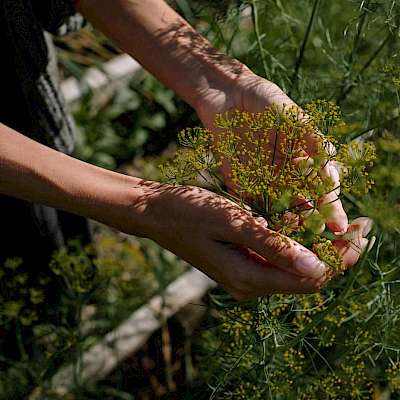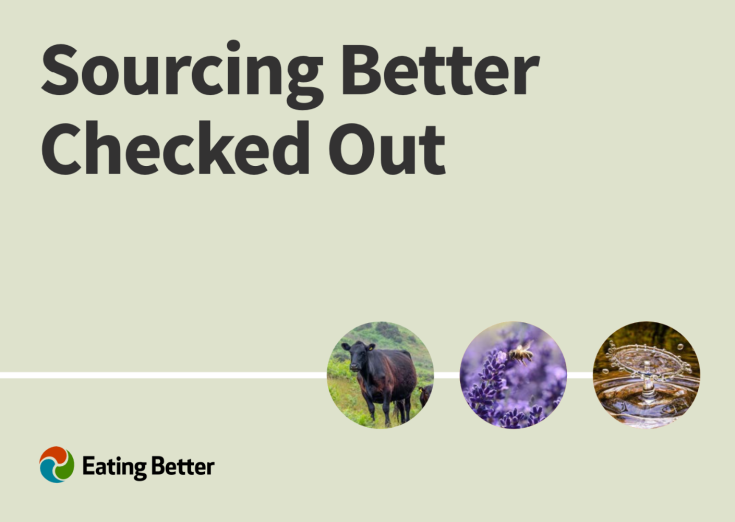The way we produce food is a key driver of climate change, deforestation and catastrophic declines in biodiversity. Food retailers have a responsibility to address their environmental impact.
But there is little evidence that food retailers are driving more sustainable sourcing, according to Eating Better’s review of published information. While many retailers have committed to improve their sourcing, from reducing carbon emissions to improving biodiversity, there is little transparency on what they’re doing to achieve it.
Eating Better’s new report, ‘Sourcing Better Checked Out’, reviews the publicly available policies of 10 major retailers against 12 outcomes set out in our ‘Sourcing Better’ framework. The review found no evidence that they are working beyond addressing single issues.
There is no evidence of policies on key areas from maintaining soil health, effective policies to reduce local pollution potential from farming, to support local biodiversity in farming landscapes or minimise impact on water scarcity.
Transparency is poor, progress across the different impact areas is uneven and there are no commitments to reduce the amount of farmed animals or meat and dairy sold as part of efforts to lower emissions. The Eating Better alliance is asking retailers to develop a plan to address each issue area and publish progress against targets.
Simon Billing, Executive Director of Eating Better alliance says:
“With all of the forces driving up food prices - from extreme weather events to war and disease outbreaks - creating a sustainable and resilient food system has never been more pressing. Sourcing Better means taking a holistic approach to ensure that the meat and dairy sold by retailers is produced in a way that delivers for nature, animals and the climate, and is profitable for farmers. They must make it easier for people to eat healthier, more sustainable diets”.
Tracey Jones, Global Director Food Business, Compassion in World Farming said:
“This detailed report highlights the urgent need for many UK retailers to grasp the interconnections of multiple issues and to demonstrate action in all areas when addressing sustainable food production. Only then can we accelerate change - a transformational change for animal welfare, a change away from our reliance on animal-sourced foods and a change in the way we produce our food to more regenerative, nature-friendly farming.”
Anna Taylor, Executive Director at the Food Foundation said:
“More sustainable production methods and changing what we eat will be key for tackling climate change. There’s no chance of the UK getting to Net Zero without changing our food system. So it’s disappointing to see that there’s still such a long way to go when it comes to producing better. Greater transparency and more ambitious target setting ought to be a priority for retailers given the influence they have on supply chains and our diets.”
Martin Lines, UK Chair at Nature Friendly Farming Network (NFFN) said:
"UK food retailers need to be held to account for transparency around their sourcing standards, which would strengthen their commitments to support nature-friendly farmers who are taking critical action to restore our farmed landscapes. As climate changes and shocks to the marketplace make our food system increasingly vulnerable, farmers need stability and support through a marketplace that genuinely champions the best standards of production."

